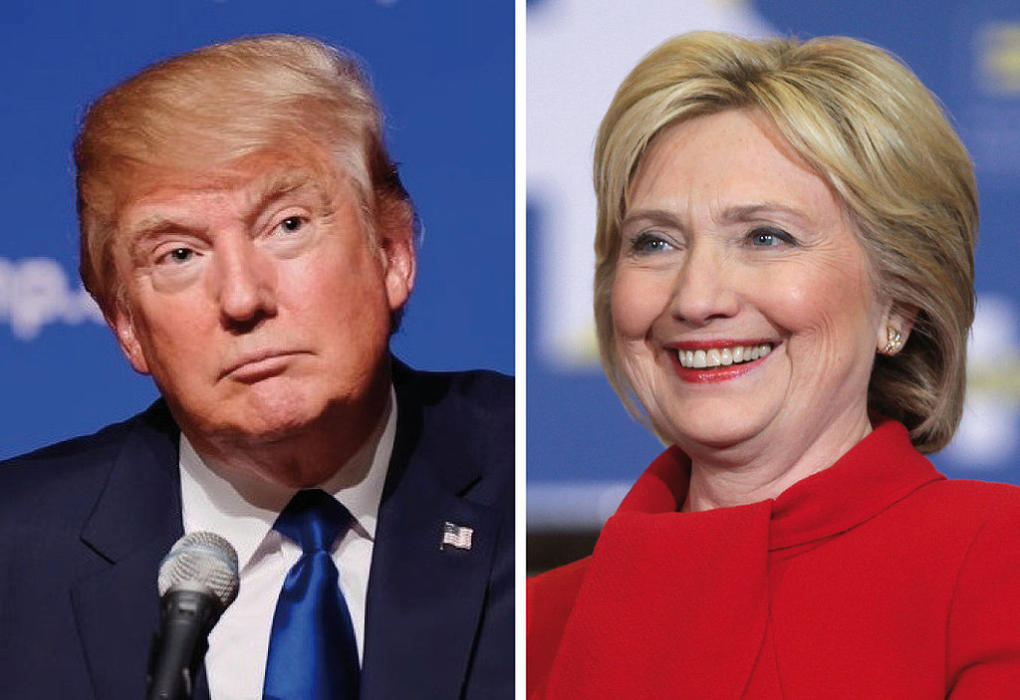A little advice for the folks at the Commission on Presidential Debates: Next time you pick colleges to host the debates, check the Washington Monthly College Guide first.
The first presidential debate—and likely the most heavily watched—between Hillary Clinton and Donald Trump will be held on September 26 at Hofstra University in New York. Getting to host this debate is a big publicity coup for any college and a high public honor. What has Hofstra done for the public to deserve it?
As it happens, the Washington Monthly has been ranking the nation’s colleges and universities for more than a decade on precisely that question: How much do they contribute to the public good? We use three broad metrics. First, social mobility: Are schools enrolling and graduating students of modest means, charging them reasonable prices, and—a new measure this year—providing degrees that enable students to earn decent salaries after they get out? Second, research: Are colleges preparing undergraduates to earn PhDs and making new discoveries that will advance the economy and human knowledge? Third, service: Are schools encouraging their students to give back to the country by joining the military or the Peace Corps or serving their local communities? You can see the full national rankings here.
How does Hofstra stack up? In the introductory essay to our rankings, guest editor Kevin Carey notes that the school “conducts very little scientific research, and its graduates are relatively unlikely to go on to earn PhDs.” It has a subpar graduation rate and “enrolls relatively few low-income and first-generation students—perhaps because it charges students from households earning less than $75,000 per year a whopping net price of $28,865, one of the very highest rates nationwide.” Its students don’t go on to earn more than would be expected given their backgrounds and they pay back their loans at somewhat lower rates than expected. “Hofstra is doing okay for itself. It is doing little for anyone else,” concludes Carey. “We rank it 297th out of 303 national universities.”
The colleges chosen to host the other three debates don’t score as abysmally as Hofstra. Washington University in St. Louis and University of Nevada, Las Vegas, come in 40th and 195th respectively among national universities. Longwood University in Farmville, Virginia, ranks 249th out of 634 master’s degree–granting colleges.
But why not honor the best? Instead of Washington University—which, for an elite institution, does relatively poorly on our rankings—how about another selective Missouri school, Truman State, first among master’s colleges and ninth on our Best Bang for the Buck ranking for Midwest schools? Why settle for Hofstra when a number of other New York colleges in the CUNY and SUNY systems do a far superior job of helping lower-income students earn quality degrees at moderate prices? Why not pick one of the Cal State or University of California campuses that have long dominated the top tiers of our rankings? And is there any reason why community colleges can’t host presidential debates? In this issue, we offer the first-ever ranking of the best two- and four-year colleges for adult learners, an increasingly important yet poorly served college demographic. Why not choose one of those?
The answer, as with most things, involves money. Hosting a presidential debate can cost millions of dollars. Schools that want to win a bid from the Commission on Presidential Debates have to show that they’re willing to spend at that level. Wright State University in Dayton, which was originally chosen for the first debate this year (Hofstra was the backup school), budgeted $5 million to handle the extra security and other costs. But when the estimate ballooned to $11 million, the school’s corporate and private contributors, who were being asked to cover the costs, balked—a better-late-than-never decision considering that Wright State, 137th on our list of national universities, has been drawing down its reserves and raising tuition to balance its books.
There are colleges all over the country like Wright State. They are struggling to stay afloat amid cuts in state funding and a shrinking pool of recent high school graduates, and desperate for any chance to get their names out. Instead of throwing money at one-shot PR events, what you’d like to see is schools like these competing with each other to serve students better—by, for instance, investing in proven reforms (see Gilad Edelman, “The Sixteen Most Innovative People in Higher Education”). But for that to happen, the rules of the higher ed game must change. The first step is simply giving public recognition to the colleges that do the right thing—as we try to do with our alternative rankings. The Commission on Presidential Debates could follow suit by changing its site-selection criteria and coming up with some money, from philanthropists or even Congress, to offset the hosting costs.
What’s ultimately needed is a radical overhaul of how the federal government funds—and, in effect, sets the terms of competition for—higher education (see Iris Palmer, “The False Promise of ‘Free College,’ ”). Let’s hope the good folks at the Commission on Presidential Debates raise that issue with the candidates at the debates.



